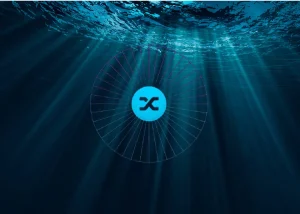OP Labs, the architects of the Optimism network, recently deployed a testnet version of their new fault-proof system. Announced in an October 3 blog post, this development aims to enable “a more decentralized and efficient Superchain,” according to the company. Moreover, it is currently in operation on the Optimism Goerli network. Besides, this new fault-proof system is modular, allowing distinct networks to develop their own anti-fraud measures.
Decentralizing network security
Until now, OP Stack-based networks like Optimism and Base have employed centralized sequencers to collect transactions and feed them into Ethereum. These sequencers create a single point of failure; they can’t be blocked by users if they submit incorrect data. This makes the networks vulnerable to fraudulent activities. However, the new fault-proof system from OP Labs promises to mitigate these risks. It incorporates three key components: a fault-proof program (FPP), a fault-proof virtual machine (FPVM), and a “dispute game protocol.” Additionally, the system allows for each network to “custom-build a fault-proof system,” potentially elevating the security within the entire Optimism Superchain.
Adaptability in network security
This newly launched system shows remarkable flexibility. It opens up avenues for each network to customize its fraud prevention measures. Consequently, networks could decide to use other security technologies like zero-knowledge proofs (ZK-proofs) as a type of fraud-proof. Notably, OP Labs envisions this innovative framework as a cornerstone for the Superchain, a colossal, interconnected web of blockchain networks they’ve been tirelessly working to build.
OP Labs’ fault-proof system answers one of the industry’s most urgent problems: transitioning from centralized security to a more robust, decentralized framework. OP Labs added that the new fault-proof system will achieve the decentralization goals for OP Stack networks: “The system is designed to eventually enable secure bridging without central fallback.”
Significantly, OP Labs CEO Karl Floersch indicated that the fault-proof system builds off the Bedrock upgrade. It is planned to set the stage for the project’s second stage of decentralization. Upon its mainnet launch, a bonding design will be included to financially back the sequencers participating in the network. If a sequencer is proven to have engaged in fraudulent activities, its bond will be slashed and redistributed to verifiers. Therefore, the latest advancement from OP Labs not only fortifies the Optimism network but also signifies an industry-wide shift toward decentralization.




